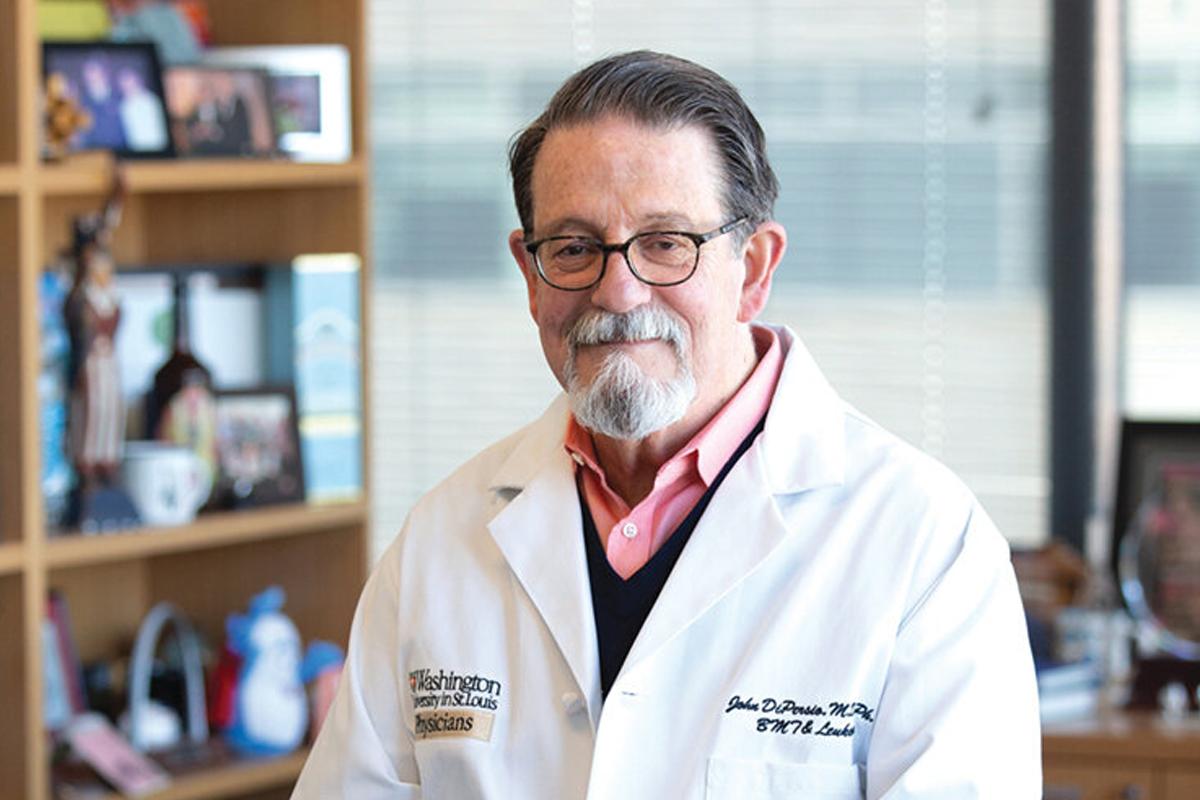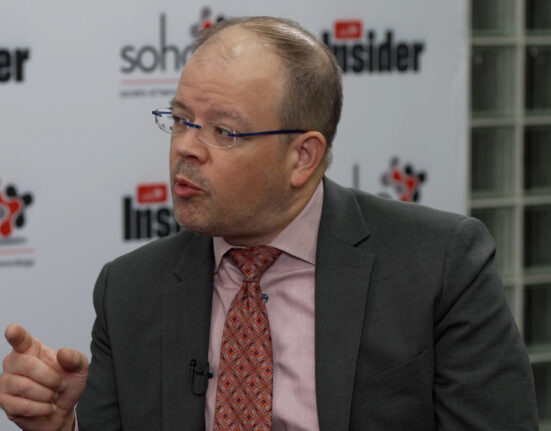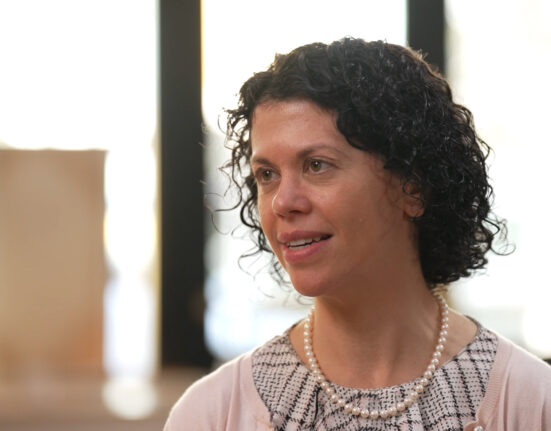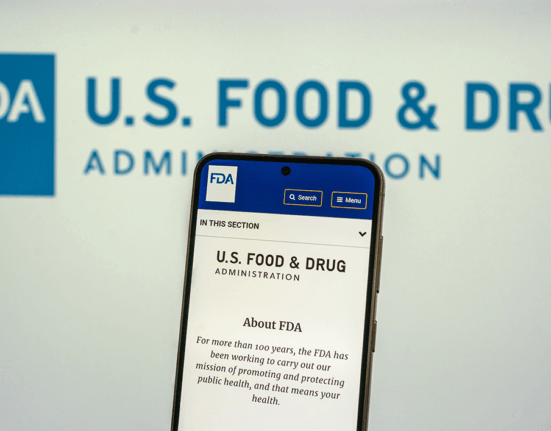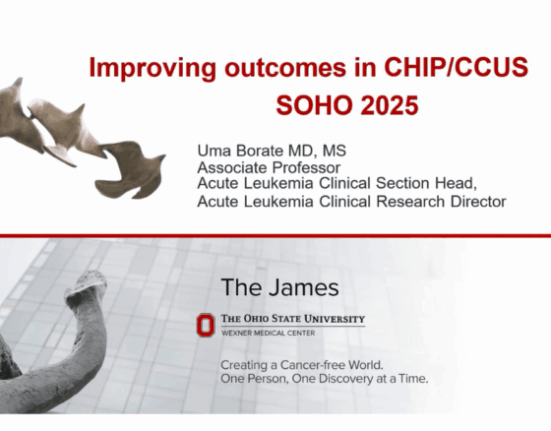After the lights go down on SOHO 2025, John DiPersio, MD, PhD, will step into his role as the 2025-2026 SOHO president. Looking ahead, SOHO 2026 will take on a bold and timely theme: “Advancing care through collaborative science.”
Dr. DiPersio, who is the director at the Center for Gene and Cellular Immunotherapy at the Washington University School of Medicine in St. Louis, Missouri, shared that next year’s SOHO meeting will highlight the partnerships and policies shaping the future of research.
With research funding in flux and cross-sector collaboration more important than ever, the question at the heart of next year’s meeting will be: How do we sustain the basic science that makes clinical breakthroughs possible?
“There has to be more of a collaborative effort between the public and private sectors to enhance these interactions so that we can continue to do basic research and translational and clinical research…because I fear the changes now might be irrevocable,” he said.
Challenges ahead
According to Dr. DiPersio’s diagnosis, the current US research system is collapsing under its own weight, with clinical trials and basic science alike becoming “too complicated, too slow, and too expensive.”
The US Food and Drug Administration, while acknowledging the need for reform, still operates in a “balkanized and lumbering” fashion, delaying progress with rigid timelines and limited real-time engagement. Meanwhile, the National Institutes of Health (NIH) increasingly demands high-impact, mechanistic science, which leaves many viable, practical projects unfunded and undeveloped.
As NIH funding declines, the ripple effects are reshaping the entire research and care landscape. Early-career scientists face dwindling grant opportunities, while established labs struggle to stay afloat, leading to a slow but devastating brain drain, according to Dr. DiPersio.
At the same time, clinical trials are becoming harder to run, with fewer open studies, overburdened investigators, and limited institutional support. Patients feel the impact directly: fewer trial options, longer wait times for innovation, and, in some cases, no access to potentially life-saving therapies. Without new funding models or stronger public-private partnerships, the United States risks falling behind in discovery and delivering care where and when it’s needed most, he warned.
“We may be losing tremendous ground to everybody else in the world. We may be losing ground to our patients because we’re not doing enough good basic research and translational research,” he said.
Next year’s SOHO theme (see SIDEBAR) was inspired by the current situation, in which the field of hematologic oncology finds itself in an era of shrinking NIH budgets, ballooning clinical trial costs, and global scientific shifts. This new reality makes collaboration across sectors more necessary than ever, according to Dr. DiPersio.
“SOHO 2026 will explore how public-private partnerships can sustain discovery, preserve basic research, and ensure access to innovation for patients around the world,” he said.
Amid the pressures of declining public funding, investigators should learn how to navigate private funding opportunities, including understanding how early-stage ideas get funded, Dr. DiPersio said.
“Understanding what investors look for, how to pitch an idea, and how to prepare for the realities of private-sector partnership could empower researchers to keep their work alive, even when NIH support falls short,” he said. “Institutions are beginning to teach investigators how to make a pitch, and I think the SOHO Annual Meeting could be the perfect forum to continue these types of conversations.”
Leah Sherwood is the Editorial Director of SOHO Insider.
SOHO 2026: Advancing care through collaborative science
Public-private partnerships in hematologic oncology bring together academic institutions, cooperative groups, government agencies, and industry sponsors to speed the development and delivery of new therapies. These collaborations leverage shared infrastructure, expertise, and funding to improve access, streamline trial design, and bring innovative treatments to patients more efficiently. SOHO 2026 will spotlight these collaborations and explore how diversified funding models can support researchers in their ongoing search for cures by cooperating with the private sector both in the United States and around the world. Sessions will examine how industry, academic institutions, and private funding agencies can collaborate on sponsored clinical trials and early-stage research that may lead to new start-ups supported by venture capital, private foundations, or philanthropic organizations. This is central to the next era of progress in hematologic malignancies and also addresses the challenges of cross-sector collaborations.
Commentary From Dr. Christopher Flowers
“The SOHO 2026 Annual Meeting promises to celebrate a transformative era in hematologic malignancy research and patient care where collaborative science is a driving force behind every breakthrough. By uniting discovery with clinical innovation, we are accelerating progress toward more precise, personalized, and durable therapies for our patients with blood cancers.”—Christopher R. Flowers, MD, MS
Visit the SOHO 2025 meeting news page for more coverage from the meeting.

